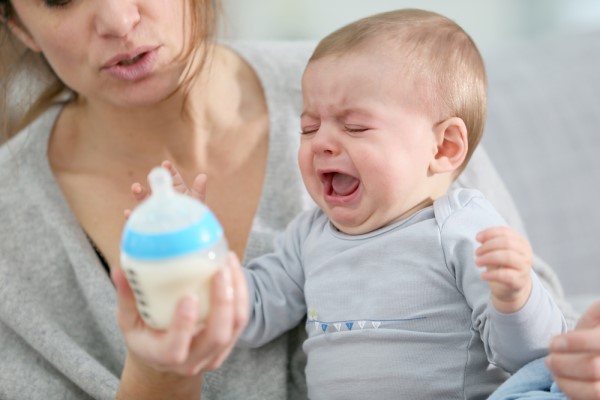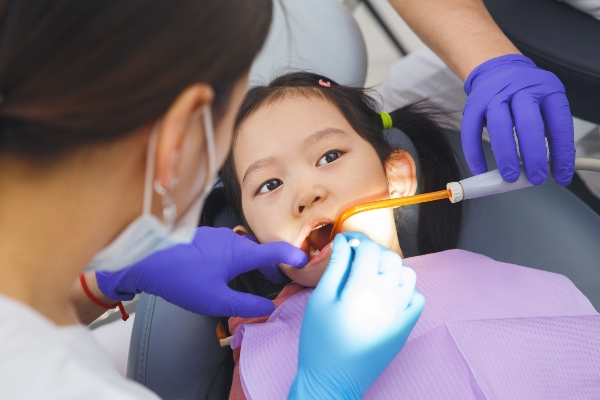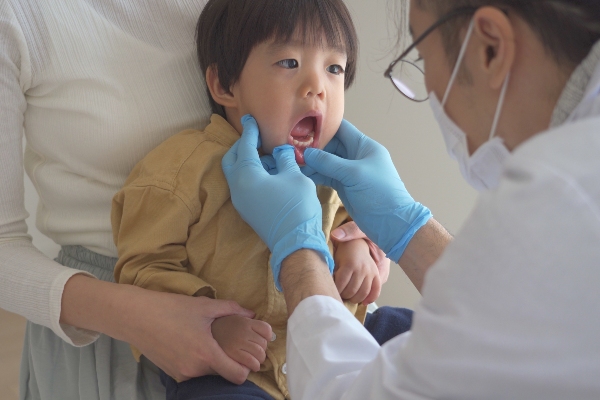Why Baby Bottle Tooth Decay Happens

While baby teeth are temporary, they are still essential and prone to caries. Baby bottle tooth decay, also known as early childhood caries, refers to tooth decay in newborns and toddlers. Children need healthy teeth to chew food, talk clearly, and smile. Their primary teeth also aid in the proper emergence of their adult teeth. To help safeguard their teeth for decades to come, parents and guardians should begin basic dental hygiene early in their children's lives.
The cause of baby bottle tooth decay
The teeth might show signs of decay in the form of black or brown stains. Children's teeth may hurt as the decay progresses. The top front teeth are most often affected by baby bottle tooth decay, although other teeth are equally susceptible. Several different things may cause tooth decay. One typical reason is regularly exposing the baby's teeth to sugary beverages for an extended period. There is a risk of tooth decay if the child constantly needs to be put to bed or soothed with a bottle, for example.
Cavity-causing bacteria may also be transferred from the primary caregiver to the newborn, leading to tooth decay. Bacteria are transmitted from person to person via saliva. Germs may be transferred to the newborn when the adult uses the same spoon or uses their mouth to clean the baby's pacifier. Also, if a child does not get enough fluoride, they are more likely to have cavities. Fortunately, decay is preventable.
The consequences of baby bottle tooth decay
Caries in infants may be a major health issue. The risk of pain and infection is higher if a tooth is lost too early or if dental decay is not addressed. If the baby teeth do not come in correctly, the child may struggle with bad feeding habits and speech issues. Crooked teeth or crowding may occur as the adult teeth come in. Extensive or severe tooth decay may lead to other issues, including chronic discomfort, misaligned teeth, trouble biting, or dangerous infections.
How to prevent baby bottle tooth decay
The following are ways to prevent dental caries in children.
Good oral care
Avoid using common feeding spoons with the child or cleaning their pacifiers with saliva. It is advisable to use a clean, wet gauze pad or washcloth to wipe the child's gums after each meal. Parents should brush their teeth gently with a child-sized toothbrush and a smear of fluoride toothpaste until they reach about three years old.
From three to six, children should brush their teeth with a pea-sized quantity of fluoride toothpaste. Brushing should be supervised until the child can be trusted to spit out the toothpaste and not ingest it, usually after they are about six or seven.
Encourage good nutrition habits
Bottles should only be filled with formula, milk, or breast milk. Avoid using sugar water, juice, or soft drinks to fill the bottle. The child should finish up their bottles before going to sleep. If the child must use a pacifier, it needs to be clean. Children should be encouraged to drink using a cup by their first birthday.
Reduce sugar consumption
Parents need to ensure that their children do not consume many sugary foods, which include candy and fruit. Children who regularly munch on these items run the risk of tooth cavities. Such foods should be limited to mealtimes only. Children also need to learn how to clean food off their teeth with their tongue.
Restrict juice to mealtimes or stop it entirely
The American Academy of Pediatrics advises against giving juice to children under six months old. Parents should give only four ounces of juice per day to infants six to 12 months of age, and even then, it should be diluted with water (half water, half juice). It is recommended that children aged one to six consume no more than 4-6 ounces of juice each day.
Drink fluoridated water
Fluoridated water is good for a child's teeth. The child's dentist may request testing a sample of the household's tap water for natural fluoride concentration, especially if it comes from a well or a similar non-fluoridated source. The dentist may recommend fluoride supplements if the tap water does not contain enough fluoride. They may also apply fluoride varnish to the child's teeth to prevent decay.
Book an appointment with the dentist
Talk to your pediatric dentist about arranging the first dental appointment for your child once their first tooth shows. Treat the child's first dental appointment like a well-baby exam with their doctor. By being proactive about your child's oral care, you can prevent baby bottle tooth decay and protect their teeth.
Request an appointment here: https://www.hvkidsmiles.com or call Hudson Valley Pediatric Dentistry at (845) 363-4177 for an appointment in our Middletown office.
Check out what others are saying about our services on Yelp: Read our Yelp reviews.
Recent Posts
Getting ready for a pediatric root canal is crucial if your child is to have a pleasant treatment experience. A damaged pulp causes serious pain. Even if extraction is an option, keeping the baby tooth intact is always a priority. Knowing what this procedure has in store can prepare your child well for it. Here…
Your child may need a pediatric root canal for an infected baby tooth. Research shows that many parents think that this is not necessary since the baby tooth will fall out anyway. But baby teeth play a vital role in your child’s dental development and health. Knowing the signs your child may go through a…
Your child’s pediatric root canal will be a delicate and painless procedure. The aim is to preserve the dental structure and prevent extraction. Preparing for this treatment is crucial. Here are five FAQs to consider during your child’s pediatric root canal consultation day.The dentist will numb the injection site with a gel or cream first.…
A pediatric root canal is one of the most common procedures that a dentist may have to perform on a child. It often has the stigma that it is uncomfortable or highly involved, but in reality, a pediatric root canal can be simple and pain-free.If your child needs a root canal, they may feel nervous…


